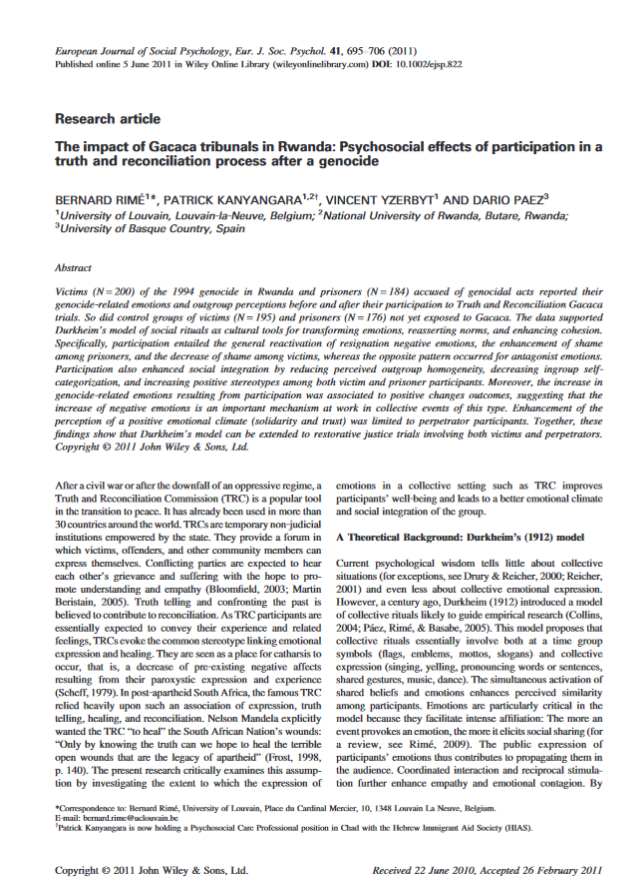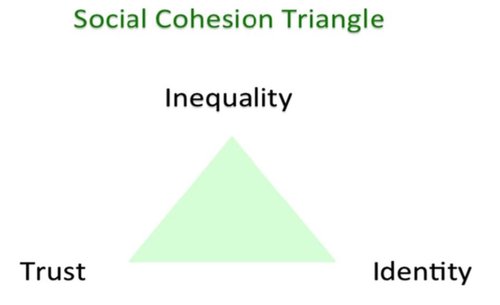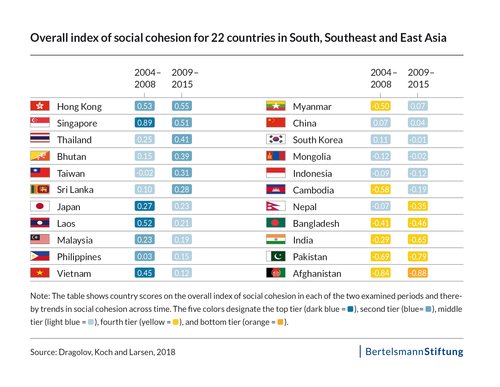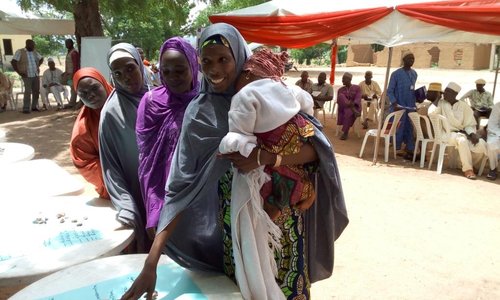The impact of Gacaca tribunals in Rwanda: Psychosocial effects of participation in a truth and reconciliation process after a genocide
Key facts
Identity/feeling of belonging
Shared values
Intergroup relations
Summary
Victims (N = 200) of the 1994 genocide in Rwanda and prisoners (N = 184) accused of genocidal acts reported their genocide‐related emotions and outgroup perceptions before and after their participation to Truth and Reconciliation Gacaca trials. So did control groups of victims (N = 195) and prisoners (N = 176) not yet exposed to Gacaca. The data supported Durkheim's model of social rituals as cultural tools for transforming emotions, reasserting norms, and enhancing cohesion. Specifically, participation entailed the general reactivation of resignation negative emotions, the enhancement of shame among prisoners, and the decrease of shame among victims, whereas the opposite pattern occurred for antagonist emotions. Participation also enhanced social integration by reducing perceived outgroup homogeneity, decreasing ingroup self‐categorization, and increasing positive stereotypes among both victim and prisoner participants. Moreover, the increase in genocide‐related emotions resulting from participation was associated to positive changes outcomes, suggesting that the increase of negative emotions is an important mechanism at work in collective events of this type. Enhancement of the perception of a positive emotional climate (solidarity and trust) was limited to perpetrator participants. Together, these findings show that Durkheim's model can be extended to restorative justice trials involving both victims and perpetrators.

Explore the hub further




